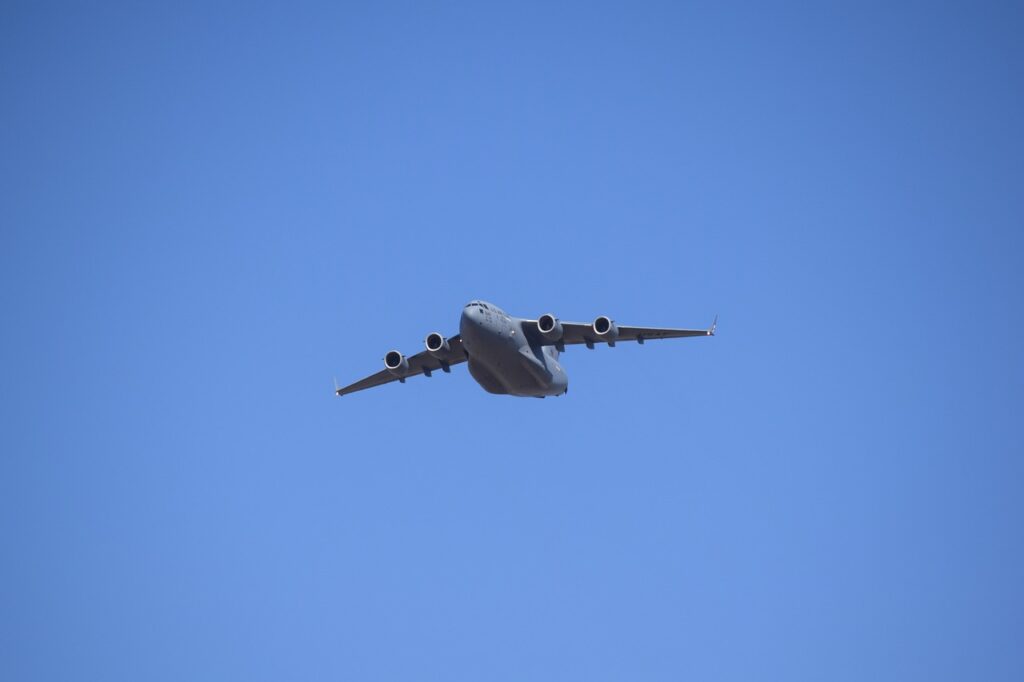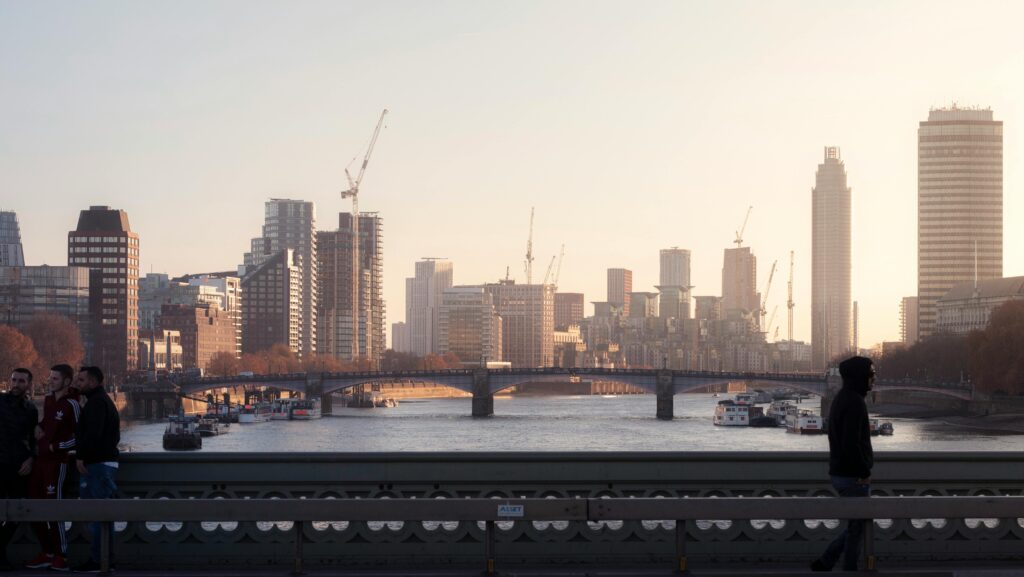On June 1, 2025, IndiGo—India’s largest airline—announced a landmark alliance with three global carriers: Delta Air Lines, Air France-KLM, and Virgin Atlantic. The memorandum of understanding (MoU) signed in New Delhi during the International Air Transport Association (IATA) annual meeting will dramatically reshape India’s international connectivity by blending IndiGo’s extensive domestic network with its partners’ transatlantic and European reach. Below, we explore the details of this partnership, its broader industry context, and what it means for passengers and India’s aviation sector.

What the Partnership Includes
- Codeshare Agreements
- IndiGo x Air France-KLM: IndiGo will codeshare on Air France and KLM flights from Indian gateways (Delhi, Mumbai, Chennai, Bengaluru) to Amsterdam (AMS) and Paris (CDG). Conversely, Air France and KLM will market IndiGo’s flights from those European hubs to over 30 secondary and tertiary Indian cities that are not directly served by Air France-KLM.
- IndiGo x Virgin Atlantic: Starting July 2025, IndiGo will place its flight numbers on Virgin Atlantic’s London Heathrow (LHR) to Delhi (DEL) and Mumbai (BOM) routes. In return, Virgin Atlantic can sell seats on IndiGo services connecting LHR to tier-II and tier-III Indian cities via Delhi and Mumbai.
- IndiGo x Delta Air Lines: Marking Delta’s re-entrance into India after a decade, Delta plans a nonstop Atlanta (ATL)–Delhi (DEL) service subject to bilateral approvals. IndiGo will codeshare on that flight and on Delta’s onward connections across North America. IndiGo, in turn, can offer its customers Delta’s network beyond Atlanta.
- Reciprocal Frequent‐Flyer Benefits
- SkyMiles & Flying Blue: Delta SkyMiles members will now earn and redeem miles on eligible IndiGo flights. Similarly, Flying Blue (Air France-KLM’s loyalty program) members can accrue and use miles on IndiGo services across India. Virgin Atlantic’s Flying Club also integrates with IndiGo’s 6E Rewards, allowing tier benefits, lounge access, and priority boarding privileges when traveling on partner flights.
- Aligned Schedules & Seamless Transfers
- Coordinated departure times at key hubs (CDG, AMS, LHR, ATL) will minimize layover durations for passengers traveling into India or onward to Europe and North America. Through-check of baggage and single-itinerary ticketing are core to the MoU, reducing complexity for travelers booking multi-carrier itineraries.
Why Now? Drivers Behind the Alliance
- Rapid Growth in India: India is projected to become the world’s third-largest aviation market by 2027, with passenger traffic doubling from 2019 to 2025. IndiGo’s domestic dominance (over 50 percent market share) makes it a natural partner for global carriers seeking to tap into India’s growth.
- Delta’s Strategic Return: Delta’s pivot back to India underscores the subcontinent’s importance. Atlanta (ATL)–Delhi (DEL) is now one of the world’s most lucrative long-haul routes; restoring connectivity to India helps Delta stem market share losses to Gulf carriers on U.S.–India traffic.
- European Hub Access: Air France-KLM and Virgin Atlantic have relied on Air India and GoFirst in recent years to feed their Indian flights. Partnering with IndiGo gives them deeper access to secondary cities beyond the four main metros—crucial for building scale and competing with Middle Eastern airlines.
- Fleet Expansion & Capacity: IndiGo is raising its international profile just as it finalizes a firm order for 30 Airbus A350 wide-body aircraft. Meanwhile, indigent deliveries on Airbus A320neo have lagged, prompting IndiGo to lease six Boeing 787-9s from Norse Atlantic. Enhanced partnerships and new planes arrive in tandem to handle surging outbound traffic this summer.
Details Missed by Early Reports
- Planned Route Rollouts
- IndiGo to Amsterdam and Manchester: Starting July 2025, IndiGo will launch its own flights from Delhi to Amsterdam (five weekly) and Mumbai to Manchester (three weekly), complementing codeshare feeds. These city pairs were previously underserved, with travelers often having to connect through Dubai or Doha.
- Delta’s U.S. Expansion: Delta has applied to India’s civil aviation authorities for approval of the Atlanta–Delhi flight, expected to operate three times weekly initially. Discussions are underway for potential second U.S. gateway, possibly Minneapolis (MSP) or New York (JFK), by late 2026.
- Regulatory and Geopolitical Considerations
- Open Skies Limitations: India currently restricts fifth-freedom rights and has slot constraints at major Indian airports (notably Delhi and Mumbai). This partnership sidesteps full fifth-freedom flights by using codeshare and single-ticketing, enabling partner carriers to market more seats without launching their own metal.
- U.S. Foreign Carrier Assessments: Delta’s return requires the U.S. Department of Transportation to reinstate India on its “Unfair and Deceptive Practices” watch list review, ensuring reciprocal market access. Final sign-off is expected by July 2025.
- Technology and Operations Alignment
- Seamless IT Integration: IndiGo’s new passenger service system (PSS) upgrade—rolled out earlier in 2025—was completed just in time to interface with Delta’s SkySuite and Air France-KLM’s ReservITer platforms. These upgrades ensure real-time seat inventory sharing and unified pricing across carriers.
- Fuel Hedging and Cost-Sharing: Joint fuel-hedging programs and operational cost-sharing agreements are in negotiation. By pooling fuel purchasing volumes, the four carriers expect to reduce unit costs on overlapping routes.
- Customer Benefits Beyond Codeshare
- Priority Handling & Lounges: Elite frequent-flyer members on any of the four airlines get reciprocal priority check-in, boarding, and baggage handling at key airports (Delhi, Paris, Amsterdam, and Atlanta). Additionally, one-time guest passes to partner lounges (e.g., SkyTeam lounges in CDG and ATL) are included for top-tier members.
- Baggage Allowance Harmonization: Standardized free-baggage allowances now apply across the codeshare itineraries—two checked bags up to 23 kg each for Economy, aligning with Delta’s policies rather than the previous 15 kg limit on standalone IndiGo international segments.
Broader Industry Impact
- Competitive Response: Gulf carriers (Emirates, Qatar Airways, Etihad) have dominated the India–Europe/North America market with one-stop connections via Dubai, Doha, and Abu Dhabi. This alliance counters that by shortening transit times and offering single-ticket itineraries.
- Cargo and CarGo Synergies: While the MoU focuses on passenger services, it lays the groundwork for cargo expansions. IndiGo CarGo already has an interline agreement with Air France-KLM Martinair Cargo; parallel bilateral cargo pacts with Delta Cargo and Virgin Atlantic Cargo are under discussion to expedite express shipments between India, Europe, and the U.S.
- Tourism and Business Travel: Indian outbound tourism to the U.S. reached 900,000 travelers in 2024, up 30 percent year-over-year. Business-travel demand—particularly from IT, pharmaceutical, and finance sectors—has also surged. Reduced fares and improved connectivity will likely accelerate corporate and leisure bookings.

Challenges and Risks
- Infrastructure Strain: Delhi and Mumbai airports are already operating near capacity at peak times. Additional codeshare flights will heighten runway and gate congestion, potentially causing delays. Plans for Terminal 4 in Delhi by 2027 aim to address this.
- Overdependence on Codeshare: Heavy reliance on codeshare rather than launching dedicated long-haul flights may limit full brand visibility. Travelers still perceive Gulf carriers as providing more legroom on A380s and 777s compared to the forthcoming A350s on IndiGo.
- Regulatory Hurdles: Finalizing Delta’s U.S. route hinges on bilateral negotiations and slot allocations. Similarly, Virgin Atlantic’s Goa–London seasonal flights announced for 2026 need state-level clearances and airport infrastructure readiness in Goa.
- Fuel Price Volatility: Shared fuel-hedging provides some cushion, but sudden spikes—like the 2024 petroleum tariff shock—could squeeze margins on thinner-yield codeshare seats.
Conclusion
IndiGo’s MoU with Delta, Air France-KLM, and Virgin Atlantic represents a paradigm shift in India’s international aviation strategy. By marrying IndiGo’s domestic density with partners’ global networks, the alliance unlocks unprecedented route options for passengers, drives competitive pricing, and solidifies India’s role as a global aviation hub. As new A350s join the fleet, codeshare feeds launch, and U.S. and European regulators grant approvals, travelers will soon see seamless, single-ticket journeys linking Ahmedabad to Amsterdam to Atlanta, or Mumbai to Manchester to Minneapolis. While challenges remain—airport infrastructure, regulatory logistics, and cost pressures—the partnership positions all four carriers to better serve rapidly growing India-centered traffic and reshape long-haul travel patterns for years to come.
Frequently Asked Questions (FAQs)
Q1: When do the initial codeshare flights begin?
IndiGo will place its codeshare code on Air France-KLM and Virgin Atlantic flights starting July 2025. Delta’s codeshare on Atlanta–Delhi is expected by late Q3 2025, pending approvals.
Q2: Will baggage allowances change for codeshare itineraries?
Yes. For Economy passengers, the free baggage allowance is now two bags up to 23 kg each on combined itineraries, harmonizing with Delta’s and Flying Blue’s policies rather than IndiGo’s former 15 kg limit.
Q3: How can frequent-flyer members benefit?
Delta SkyMiles, Flying Blue (Air France-KLM), and Flying Club (Virgin Atlantic) members earn and redeem miles on IndiGo flights. Similarly, 6E Rewards members can earn points on partner flights and enjoy priority services when flying on Delta, Air France-KLM, or Virgin Atlantic.
Q4: What new direct routes will IndiGo operate?
Starting July 2025, IndiGo launches Delhi–Amsterdam (65 km) services five times weekly and Mumbai–Manchester thrice weekly, using leased Boeing 787-9s until its own A350s arrive.
Q5: How will this affect ticket pricing?
Improved connectivity and competition may lower combined fares by up to 15 percent on India–U.S./Europe itineraries, especially during shoulder-season months (April–May, September–October).
Q6: What infrastructure upgrades are planned to support this growth?
Delhi Airport Day 4 (Terminal 4) is slated for late 2027, adding eight new gates and three runways. Mumbai’s Navi Mumbai International Airport Phase I opens by mid‐2026, relieving congestion and enabling more codeshare slots.

Sources The Hindu


